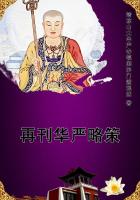THE WORSHIP of the oak tree or of the oak god appears to have been shared by all the branches of the Aryan stock in Europe. Both Greeks and Italians associated the tree with their highest god, Zeus or Jupiter, the divinity of the sky, the rain, and the thunder. Perhaps the oldest and certainly one of the most famous sanctuaries in Greece was that of Dodona, where Zeus was revered in the oracular oak. The thunder-storms which are said to rage at Dodona more frequently than anywhere else in Europe, would render the spot a fitting home for the god whose voice was heard alike in the rustling of the oak leaves and in the crash of thunder. Perhaps the bronze gongs which kept up a humming in the wind round the sanctuary were meant to mimick the thunder that might so often be heard rolling and rumbling in the coombs of the stern and barren mountains which shut in the gloomy valley. In Boeotia, as we have seen, the sacred marriage of Zeus and Hera, the oak god and the oak goddess, appears to have been celebrated with much pomp by a religious federation of states. And on Mount Lycaeus in Arcadia the character of Zeus as god both of the oak and of the rain comes out clearly in the rain charm practised by the priest of Zeus, who dipped an oak branch in a sacred spring. In his latter capacity Zeus was the god to whom the Greeks regularly prayed for rain.
Nothing could be more natural; for often, though not always, he had his seat on the mountains where the clouds gather and the oaks grow. On the Acropolis at Athens there was an image of Earth praying to Zeus for rain. And in time of drought the Athenians themselves prayed, Rain, rain, O dear Zeus, on the cornland of the Athenians and on the plains.
Again, Zeus wielded the thunder and lightning as well as the rain. At Olympia and elsewhere he was worshipped under the surname of Thunderbolt; and at Athens there was a sacrificial hearth of Lightning Zeus on the city wall, where some priestly officials watched for lightning over Mount Parnes at certain seasons of the year. Further, spots which had been struck by lightning were regularly fenced in by the Greeks and consecrated to Zeus the Descender, that is, to the god who came down in the flash from heaven. Altars were set up within these enclosures and sacrifices offered on them. Several such places are known from inscriptions to have existed in Athens.
Thus when ancient Greek kings claimed to be descended from Zeus, and even to bear his name, we may reasonably suppose that they also attempted to exercise his divine functions by ****** thunder and rain for the good of their people or the terror and confusion of their foes. In this respect the legend of Salmoneus probably reflects the pretensions of a whole class of petty sovereigns who reigned of old, each over his little canton, in the oak-clad highlands of Greece. Like their kinsmen the Irish kings, they were expected to be a source of fertility to the land and of fecundity to the cattle; and how could they fulfil these expectations better than by acting the part of their kinsman Zeus, the great god of the oak, the thunder, and the rain? They personified him, apparently, just as the Italian kings personified Jupiter.
In ancient Italy every oak was sacred to Jupiter, the Italian counterpart of Zeus; and on the Capitol at Rome the god was worshipped as the deity not merely of the oak, but of the rain and the thunder. Contrasting the piety of the good old times with the scepticism of an age when nobody thought that heaven was heaven, or cared a fig for Jupiter, a Roman writer tells us that in former days noble matrons used to go with bare feet, streaming hair, and pure minds, up the long Capitoline slope, praying to Jupiter for rain. And straightway, he goes on, it rained bucketsful, then or never, and everybody returned dripping like drowned rats. But nowadays, says he, we are no longer religious, so the fields lie baking.















